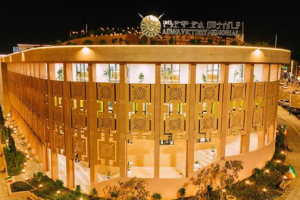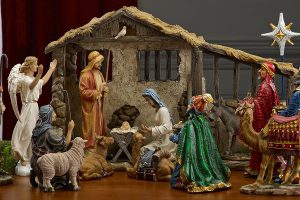BY MULUGETA GUDETA
Whether there is an African philosophy in the sense of Western philosophy or Chinese philosophy or whether African philosophy is only a form of what some critics call ethno-philosophy, or the philosophy of African ethnic communities still remains an old but unresolved debate.
The debate was intense in the 1970s and 1980s when many African philosophers tried to defend the African perspective while others denied stuck to the ethno-philosophy position.
The debate that was almost always confined to academic circles, is now almost dead at a time when it should be the centre of attention by African scholars as the question of black identity and black civilization in general has become a hot issue with the rise of Black Lives Matter movement in the United States and radical Pan-African dissent around the world.
Traditionally, this debate has also divided many intellectuals between those who think that African philosophy in the proper sense, that is to say in the sense of Western philosophy or the philosophy of Reason, has never existed and those who think that African philosophy has its own specific characteristics that are different from Western philosophy as such.
If we talk about Chinese philosophy which is different from Western philosophy, why not talk about African philosophy?
Commenting on the nature of Western philosophy, one of the founders of French Deconstructionism, and Algerian-born philosopher Jacques Derrida says that, “Metaphysics-the white mythology which resembles and reflects the culture of the West: the white man takes his own mythology, Indo-European mythology, his own logos, that is, the mythos of his own idiom, for the universal form of that he must still wish to call Reason.”
In this quotation, Derrida obviously criticizes Western philosophy as a presentation of white mythology as universal truth or as a philosophy of Reason, something that is non-existent in African philosophy.
According to Tsenay Serekeberhan, author of “African Philosophy-The Essential Readings” The debate around African philosophy was mainly focus on the book by Father Placide Temples, a Belgian priest who tried to lend some shape to what he called “Bantu philosophy”.
In this book, Serekeberhan summarizes the issues as follows, “In other words, as presently constituted, African philosophy, documenting the implicit philosophies and worldviews of ethnic Africans.” is a body of texts directed at philosophically engaging African concerns and on the other hand.
From what Serekeberhan has collected in his book of some twelve essays by prominent African philosophers one can derive the various contradictory position on the question whether there is or not an African philosophy in the modern or Western sense of the term.
By doing this he seems to address the following question: Is there an African Philosophy? To this end he starts his anthology with an essay by African scholar Innocent Onywewuenyi, whose title bear the same enigmatic question.
Among the central arguments Onywewinenyi, is a critic of the Western attitude towards African philosophy. He says, “The Africa that is portrayed in books by Western ethnologists and historians is the Africa of the savage Africans who did nothing, developed nothing or created nothing historical.”
The author of this essay maintains that, “Be that as it may, my contention is that the philosophy of people has little or nothing o do with academic exponents of that philosophy, Philosophizing is universal experience. Every culture has its own world view. If you study the history of philosophy, you will find there is no agreement on the definition of philosophy.”
The above-quoted author refers to many African authors to elaborate on what he calls “African Theory of Knowledge”, “African Ethical Theory”, and African morality. His conclusion is that, “The rediscovery of African philosophy has influenced African scholars in writing about African personality or what the French-speaking scholars call Negritude.
Kwame Nkrumah, Julius Nyerere, Leoppold Senghor, Aime Cesaire, Nnmadi Azikwe and Chinua Achebe have written prose and verse to celebrate this philosophy.” IN short the author thinks that there is an African philosophy in the African sense of the term.
The twelve essays contained in Serekeberhan’s book thus contain essays in favor of the existence of African philosophy and those against the existence of such a philosophy. Others take a middle position that support the positive thesis about African philosophy and negative ones that do not agree with this thesis. It is impossible to expose all of them in this short article and it would be relevant to refer to other prominent foreign or local philosophers who argued in favor of the existence of African and Ethiopian philosophies.
Professor Claude Sumner was a Canadian by birth and an Ethiopian by conviction. He taught philosophy in Ethiopia for many decades and wrote two important books on African and Ethiopian philosophies.
In his book entitled African Philosophy”, Professor Sumner affirms that Africa has its own philosophy. The title of the book itself is a sufficiently indirect testimony as to the existence of an African philosophy proper. Otherwise he would not have used this title. Nevertheless, Professor Sumner goes farther than the book title in order to elaborate on his central thesis.
Sumner’s “African Philosophy” is more than 400 pages long and contains proceedings of seminars on African philosophy held in 1976 and 1980. From one of the proceedings of the seminar on African philosophy held in 1976, we can quote the following passages in order to illustrate that the problem of the existence of an African philosophy is a central problem that needs to be answered positively. According to the presenter of this paper entitled, The Existence and Nature of African Philosophy”
The author, Dr. N’sougan Agblemagnon, says that, “We must therefore tackle the problem of philosophy in Africa in the past and in the present, with an open mind, with an intense eagerness to know, that is, with a desire to discover and clarify the specific character or characters of the approaches of African experience, both on a purely theoretical and on a practical level.
For in Africa, more than anywhere else,, a philosophy cannot be restricted to theory alone.; it is simultaneously theory and act, myth and its meaning as we find them so well combined in African in African tales.”
The seminar papers are many and their analyses deep and wide-reaching. It is therefore impossible to treat their contents in such a brief newspaper articles. Suffice it to say that most, if not all of them, address the question of the existence of an African philosophy in a positive way although their approaches and perspectives might be widely different.
Commenting on the seminar papers, Professor Sumner for instance says that the papers are organized in three main headings dealing with various issues while the second heading groups, as Prof. Sumner put it, “…those papers which answer in a positive way the main question of the Seminar or criticizes the negative answers to it; the contributions of traditional thoughts of Egypt and of Ethiopia to African wisdom are given as specific examples.”
At the end of the book in which he deeply analyses the contributions of Zarayacob and Welde Hiwot made to the articulation of Ethiopian philosophy, Professor Sumner comes to the inevitable opinion that, “If these conclusions are valid, then it follows that modern philosophy began in Ethiopia at the same time as in England and France.
In order to arrive to this conclusion, Professor Sumner has for instance, analyzed the similarities and difference between Zarayacob and French rational philosopher Descartes who arrived to similar conclusions regarding the main question of man’s relations to God and his place in the world and the other existential challenges he faces.
Among the authors who dealt with the place of African or Ethiopian philosophy, no one other than the Ethiopian G.E. Gorfu, in his work entitled “Gorfu Against Nietzsche” , has ever glorified Ethiopia’s contribution to European and world philosophy when he says, “And yet, in the seventeen century, predating these European thinkers by over a century, Zarayacob, the great Ethiopian philosopher, with a rudimentary church education and none of the benefits if Western university, wrote the first critical, “secular” examination of the teachings of Moses and Mohamed.
“With his sharp and analytical mind, Zarayacob showed which aspects of the teachings and laws of Moses and Mohamed could to have come from God and must therefore be fabrications of man…Western academia refused to recognize and accept Zarayacob’s work as genuine…Since the writings of Zarayacob came to Europe, however, almost overnight theological and philosophical discussions changed their tunes forever.”
Such a view is of course unpleasant to European and Western ears that continue to deny that Africans are capable of rational thinking.
The Ethiopian Herald February 6/2021





